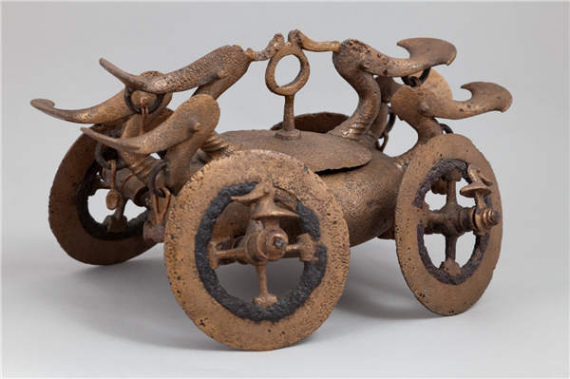
The exhibits include two figurines, "the thinker" and "the seated woman", unearthed from a Neolithic-period grave in 1956 and believed to represent a couple, a bronze chariot used for religious sacrifices that can be traced back to the Iron Age and a silver helmet made about 2,300 years ago.
It's the first time that Romanian artifacts are being displayed on a large scale in China, thanks to a cultural cooperation agreement signed by the two governments in 2013, according to Ernest Oberlander-Tarnoveanu, director of the National History Museum of Romania.
Four decades earlier, Chinese cultural relics had first been shown in Romania.
In 1973, the first Chinese exhibition in Romania displayed ancient objects, opening a link between museums in the two countries. And Tarnoveanu, who was then a college student of archaeology, had seen the display.
The latest exhibition from China was in 2014 and included 101 items of bronze, Terracotta Warriors and imperial objects from several Chinese museums. The display was on at the National History Museum of Romania.
Wang Jun, director of Art Exhibitions China, says: "The event, which ran for three months, attracted 50,000 viewers, which is quite extraordinary for a foreign exhibition in Romania."
Art Exhibitions China, the Beijing-based institution, under the State Administration of Cultural Heritage, was established in 1971 to organize foreign art exhibitions in China and Chinese art exchanges abroad.
Tarnoveanu hopes Wang's organization can take more exhibitions to Romania, where he says interest in ancient Chinese culture is growing.


















































